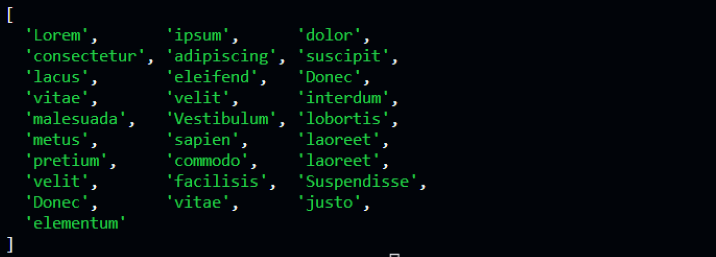
 Data Structure
Data Structure Networking
Networking RDBMS
RDBMS Operating System
Operating System Java
Java MS Excel
MS Excel iOS
iOS HTML
HTML CSS
CSS Android
Android Python
Python C Programming
C Programming C++
C++ C#
C# MongoDB
MongoDB MySQL
MySQL Javascript
Javascript PHP
PHP
- Selected Reading
- UPSC IAS Exams Notes
- Developer's Best Practices
- Questions and Answers
- Effective Resume Writing
- HR Interview Questions
- Computer Glossary
- Who is Who
How to use SolverJS?
SolverJS is a comprehensive JavaScript package that provides a range of functions to help us solve common math problems. We know that web applications often require complex logic to function properly, and these logical solutions can easily become long and difficult to manage. This is where Solver JS comes in - it includes a wide range of general and complex mathematical solutions and provides functions not available in standard JavaScript.
In this tutorial, we will learn how to use Solver JS and its various functions. The package includes functions such as date conversions, keyword extraction, string case checking, URL shortening, and much more.
Steps to use SolverJS
Users can follow the steps below to use SolverJS in their projects ?
Step 1 ? First, we must create new Node.js project by running npm init in the terminal. This will create new package.json file for our project.
npm init
Step 2 ? Next, we need to install the SolverJS package by running the following command in the terminal ?
npm install solverjs
Step 3 ? Once we have installed SolverJS, we can start using its functions in our code. To do this, we must import the functions we want to use at the top of our JavaScript file. For example, if we want to use the add function, we will import it like this ?
const { add } = require('solverjs');
Step 4 ? After importing the function, we can use it in our code like any other JavaScript function. For example, to add two numbers, we could use the add function like this ?
const sum = add(2, 3); console.log(sum); // Output: 5
Step 5 ? In addition to using individual functions, we can also use SolverJS's utility functions, which provide useful tools for working with data. For example, to check if a string is a valid email address, we can use the isEmail function like this ?
const { isEmail } = require('solverjs'); const email = 'example@domain.com'; const isValidEmail = isEmail(email); console.log(isValidEmail); // Output: true
Methods in SolverJS
SolverJS provides many useful functions and common logic solutions. Here are some of the methods that SolverJS offers ?
String Manipulation Methods
capitalize ? capitalizes the first letter of a string.
isLowerCase ? checks if all letters in a string are lowercase.
isUpperCase ? checks if all letters in a string are uppercase.
reverseString ? reverses the order of characters in a string.
truncate ? truncates a string to a specified length and adds ellipses at the end if it exceeds the limit.
Mathematical Methods
isPrime ? checks if a number is a prime number.
findFactors ? finds all factors of a given number.
sum ? finds the sum of a given array of numbers.
product ? finds the product of a given array of numbers.
Date/Time Methods
getAge ? calculates the age of a person based on their birthdate.
getDaysBetweenDates ? calculates the number of days between two given dates.
getTimeFromDate ? returns the time from a given date as a string.
Example
In this example, we are using the keywordExtractor function to extract keywords from a given text. We pass the text as a parameter to the function, and it returns an array of keywords that are present in the text.
const solverjs = require('solverjs');
const text = "Lorem ipsum dolor sit amet, consectetur adipiscing elit. Duis suscipit lacus ac urna eleifend pharetra. Donec eu nibh vitae velit interdum malesuada at id sapien. Vestibulum lobortis metus sit amet sapien pulvinar, non laoreet urna vestibulum. Sed fringilla, nunc sit amet pretium ultricies, quam erat commodo est, vel laoreet velit erat eu turpis. In et urna eu ex facilisis hendrerit. Suspendisse potenti. Donec in enim vitae justo elementum bibendum.";
const keywords = solverjs.keywordExtractor(text);
console.log(keywords);
Output

Example
In this example, we use the isArmstrong function to determine whether given number is an Armstrong number. The isArmstrong function only takes a single argument, which is the number to check. It returns boolean value (true or false) depending on whether the given number is an Armstrong number or not.
const solverjs = require('solverjs');
// Check if the number is Armstrong number or not
console.log(solverjs.isArmstrong(153) );
console.log(solverjs.isArmstrong(9474) );
console.log(solverjs.isArmstrong(123) );
Output
It will produce the following output ?
The output of the first two console.log statements is true since 153 and 9474 are Armstrong numbers. The output of the third console.log statement is false since 123 is not an Armstrong number.
true false false
Example
In this example, we are using the dateToDay function. The function takes a string representing a date as input and returns the corresponding day of the week. In this case, the function is called with the string '01/01/2000', which represents January 1, 2000.
const solverjs = require('solverjs');
console.log('The day is : ' + solverjs.dateToDay('01/01/2000'));
Output
It will produce the following output ?
The output is the day of the week, which in this case is Saturday.
The dat is : Saturday
In this tutorial, we learned about Solver JS. We learned how to install and use Solver JS in our projects using npm and explored some examples of how to use its functions, including amstrong number checker, keyword extraction, and date conversions.
Overall, Solver JS provides a convenient way to simplify complex code and increase developer productivity. By using the functions provided by Solver JS, we can reduce development time and focus on building high-quality applications.

